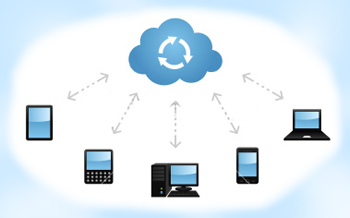
Benefits of Using VoIP Technology
More and more businesses are implementing Voice over Internet Protocol or VoIP technology because of its versatility, flexibility and cost-effectiveness. With new developments in this technology, the scope of its applications is widening. It is becoming more than just voice communications technology. That is why businesses of all sizes are migrating at an increasing rate. Here is a short list of some of the benefits.Versatility/Flexibility: There are many VoIP service companies that have been working feverishly to enhance the use of this technology. They are bundling up other communication applications into a single unified communication platform to increase the efficiency for businesses. This means all modes of communication such as voice, fax, video, web conferencing and emails can be utilized, using a single software application. The ability of this application to convert voice into an email or fax into an email can bring a tremendous amount of efficiency to business operations. You don't need to sign up for a separate service for a telephone or video conference. An incoming phone call can be received on a mobile phone and regular phone simultaneously. That means there are fewer missed important phone calls, and less wasted time on 'phone-tag.' An employee can receive an important fax on a laptop while sitting in an Internet café or within range of a Wi-Fi hot spot, and can redirect it to an associate within minutes with a few keystrokes. The list of benefits goes on.
Reduced cost: There are many ways VoIP can lower communications cost thus significantly enhancing the revenue. Here are some of the financial benefits of implementing VoIP.
- Cost per phone call: Making long distance or international phone calls using landlines or mobile phones can be very expensive. Charges incurred at per-minute rate can add up quickly. When you conduct business from multiple locations VoIP applications allow you to make calls from PC to PC that are free if they are within the same network. That could be significant to eliminate long distance charges if two locations are hundreds of miles apart. You can also pay a low monthly flat fee and make an unlimited number of calls, including international calls. This means much less usage of your mobile phone-minutes.
- Operational costs: You don't need separate networks for data and voice communications. Everything can be done using the data network. Specially designed phones with VoIP technology can be managed right from your desktops. There are a few things at work here. First of all, you have the potential to be eliminating traditional "phone" lines, usually a significant monthly fixed cost, in addition to the per minute usage costs. Paying per minute remains a major issue if you do any international calling, or have offices located in other countries, where per minute rates may not have dropped like those in the US. Another operational cost that goes away are the labor costs involved in moving employees from office to office. Reconfiguring numbers and phones can still require physical changes. Even if they are only software changes, there is a cost to pay the technician who handles these reconfigurations.
- Infrastructure cost: With this technology your infrastructure cost is greatly reduced. For example, you have to pay more for the telephone extensions using traditional PBX and key systems. Using VoIP allows you to run those extensions right from your computers. Dual-mode phones can be used with this technology after making minor configuration changes. That allows the user to switch the use of a dual phone from cellular to a local Wi-Fi environment, reducing the need to carry a regular phone and a cell phone. That means fewer devices to manage.

Comments
Post a Comment